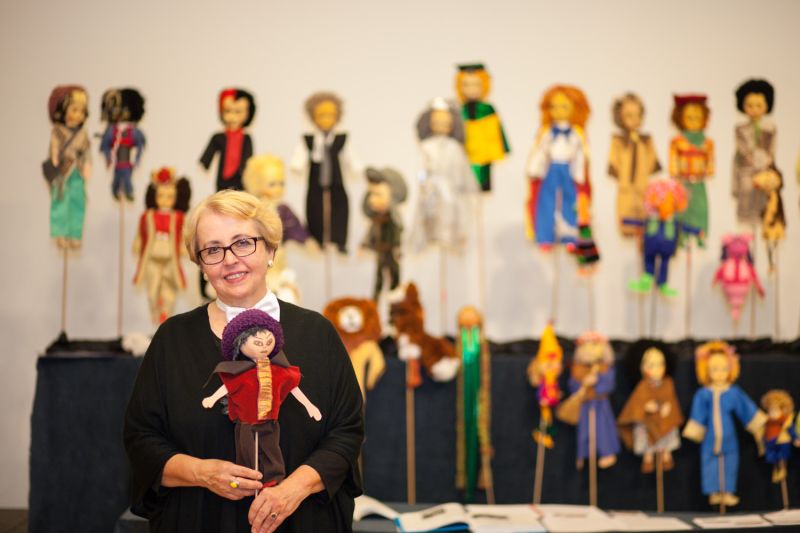Maria Końska-Chmielecki. Puppets, passion and Polish traditions
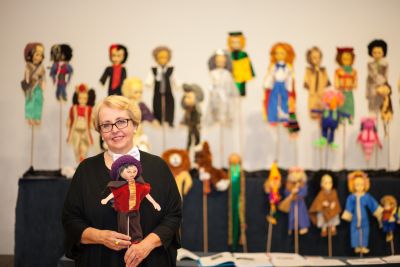
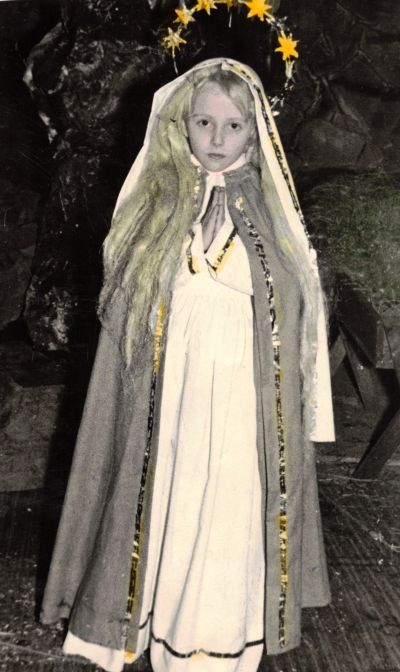
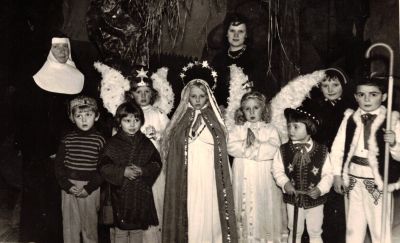
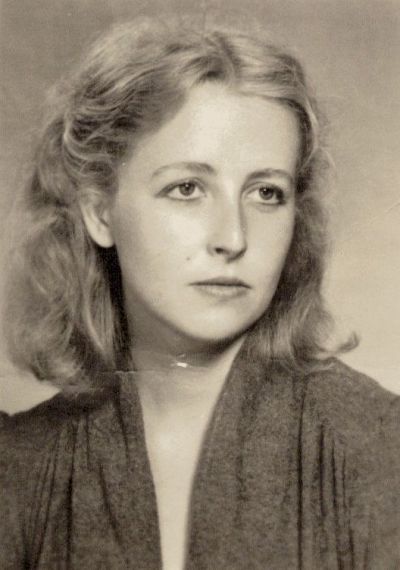
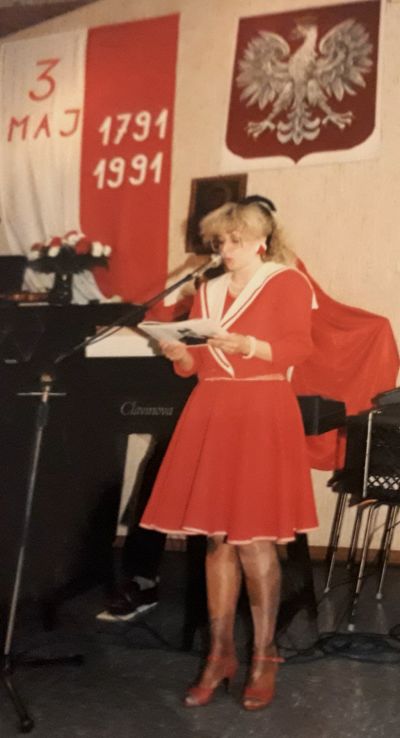
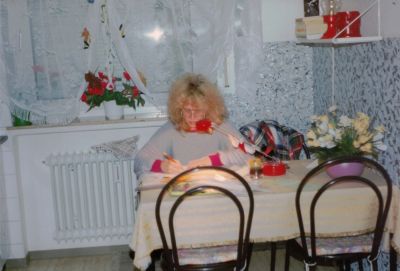
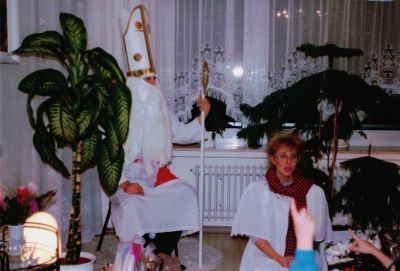
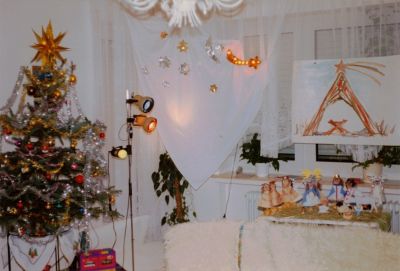
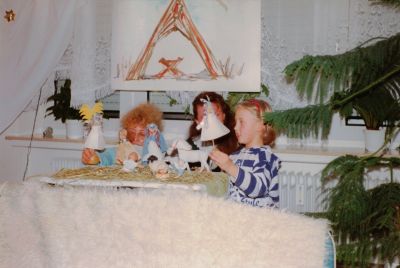
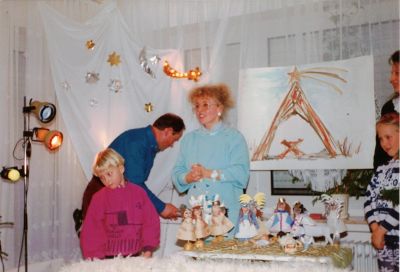
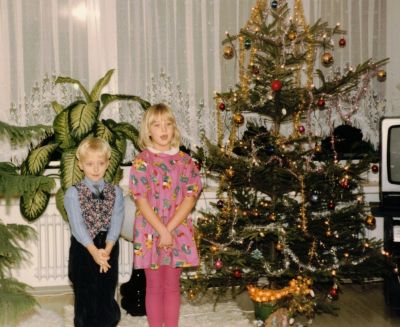
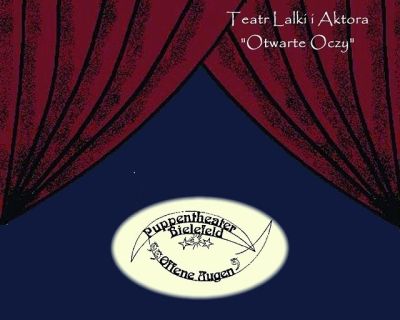
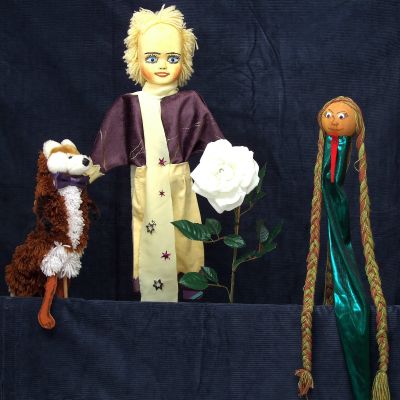
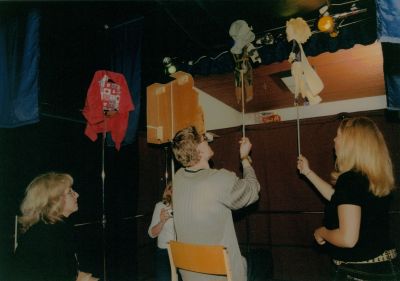
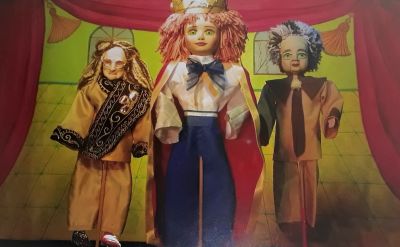
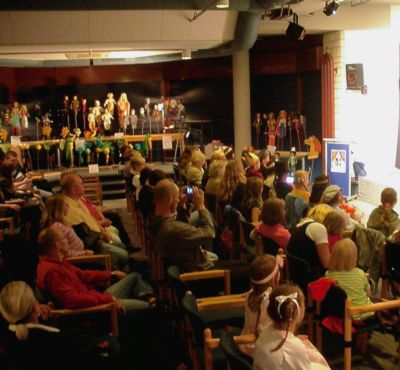
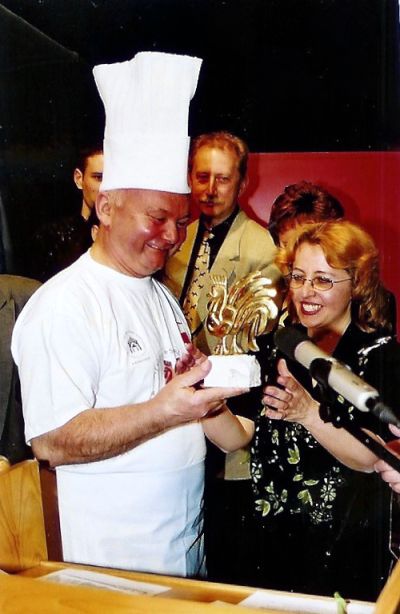
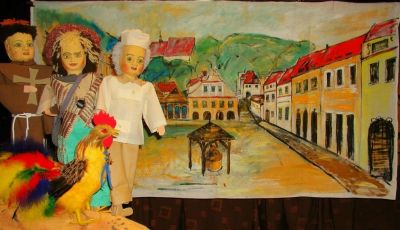
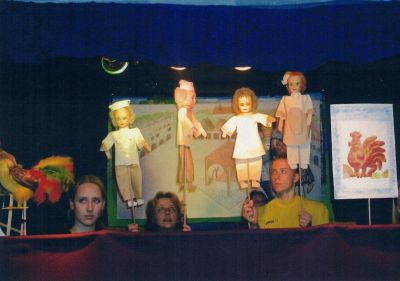
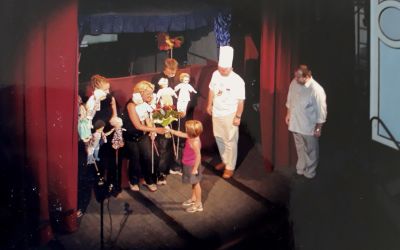
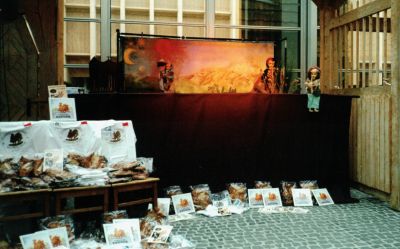
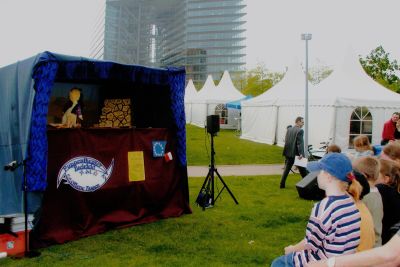
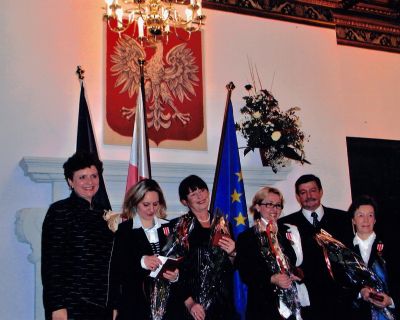
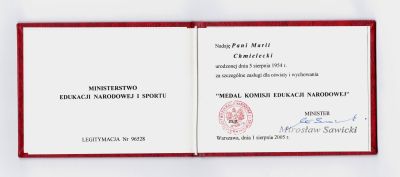
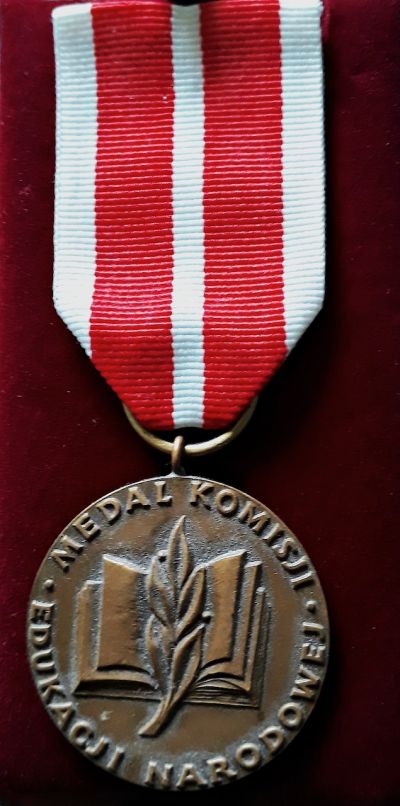
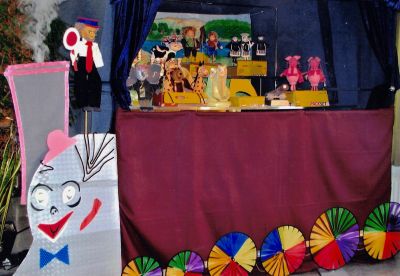
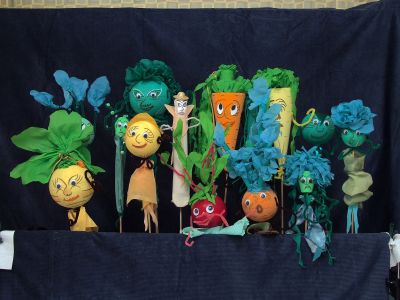
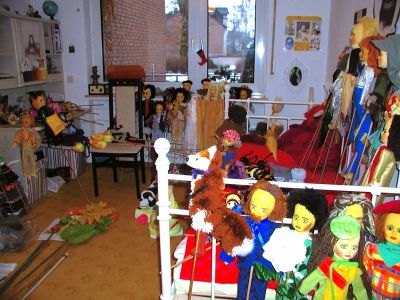
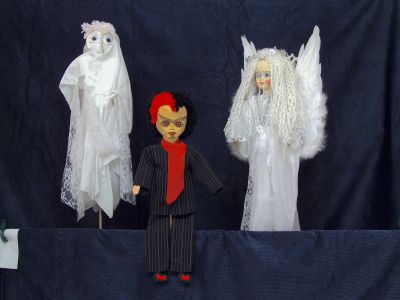
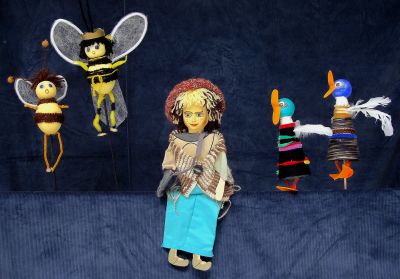
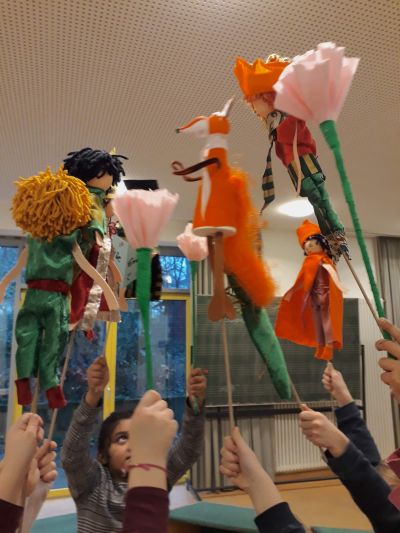
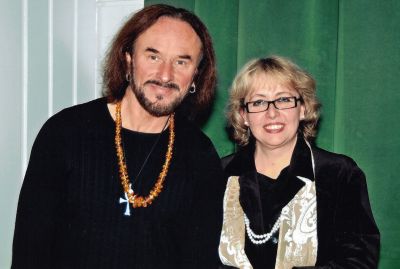
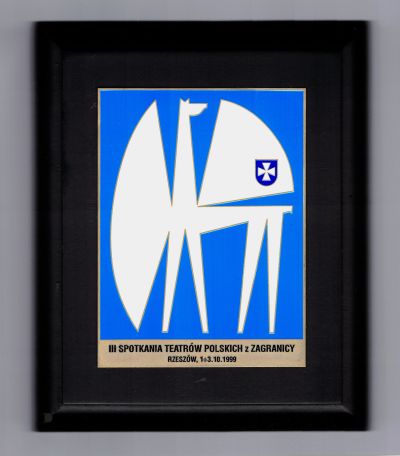
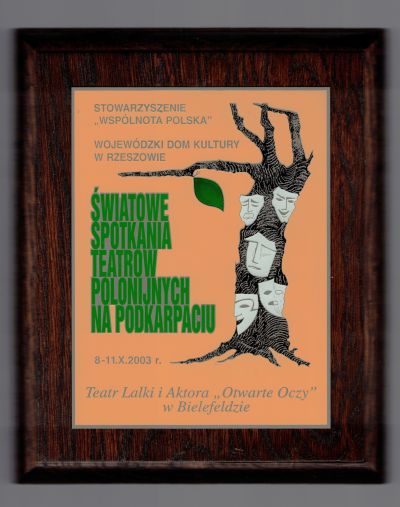
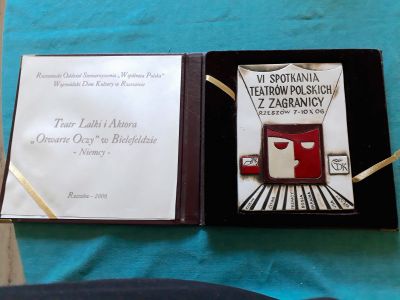
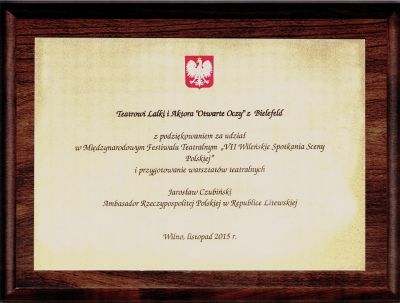
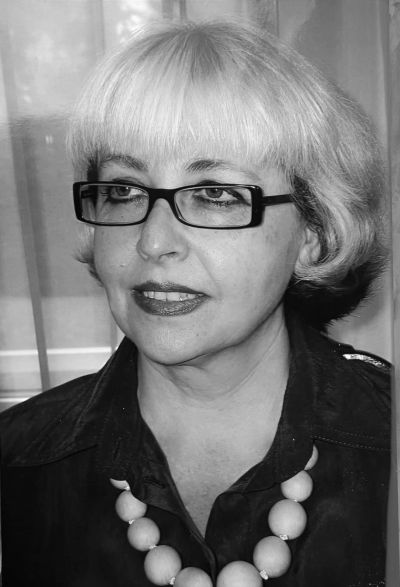
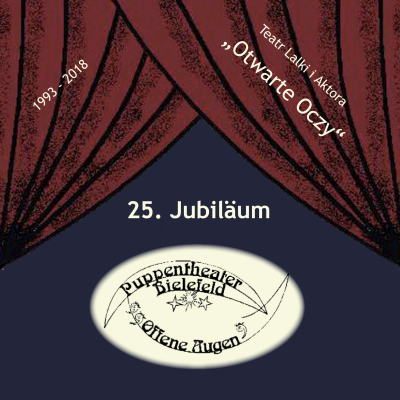

Family traditions in the limelight.
How Christmas at home became a stage show
The story begins in Bielefeld in 1992, with an idea born on St. Nicholas’ Day. Three Polish families with kindergarten and primary school-age children are sitting in our living room next to the decorated Christmas tree. The apartment doorbell rings. The children turn their heads towards the entrance door and mother calls out from the hallway: “St. Nicholas is here!”. The youngest children are excited as St. Nicholas, actually one of the fathers, enters the room. He sits down on the armchair and in keeping with the good old Polish tradition, we children must first recite a short poem or play a Christmas carol on the recorder before St. Nicholas gives us our presents. At the end, we all sing “Lulajże, Jezuniu”, one of the most famous Polish Christmas carols. Then, St. Nicholas says goodbye and wishes us a happy advent. For our parents, it was always important that we kept our Polish traditions.
Christmas time was always very theatrical in our home. We sang songs, and son Dominik played the piano and recited poems. On Christmas Eve, our mother read out the story of Jesus’ birth from the Bible. Often, she would pass me the Polish bible and had me read the part of the angel speaking to the shepherds: “Do not be afraid! I bring you good news that will cause great joy for all the people. Today in the town of David a Saviour has been born to you; he is the Messiah, the Lord. This will be a sign to you: you will find a baby wrapped in cloths and lying in a manger.”
The beginnings of the puppet theatre.
How our nativity play turned our childhood into a magical theatre
Our mother, Maria Końska-Chmielecki (5 August 1954 – 21 June 2022), who was born and raised in Kraków, was a psychology graduate. In 1993, she founded the “Offene Augen” puppet theatre in Bielefeld, with the idea of creating a nativity play in Polish with and for us children.
She had already enthusiastically participated in theatre projects in Kraków, playing various roles and later directing the plays. She was sure, therefore, that we would also enjoy taking part. For her, it was a wonderful way of continuing the work that she knew from her childhood and youth. She therefore had no qualms about taking on this new challenge.
The name she chose for the theatre sent a clear message: you should look at the world with open eyes and be aware of the small details that make a difference. This reflected not only her devotion to art, but also her life philosophy that the world can be experienced in a richer, deeper way through careful observation and creative expression.
A few weeks after St. Nicholas’ Day 1992, on Epiphany Day (6 January 1993), the nativity play written by our mother was performed for the first time in front of friends and acquaintances in our living room at home. She designed the puppets and developed the choreography for the performance in advance. At that time, our standard lamp served as a spotlight, while the puppets’ clothes were made from decorated coffee filters; the voices of the Three Wise Men were played from a cassette recorder. You could tell how much the children loved the play by the gleam in their eyes. It was a success!
From school project to international stage success
That same year, as part of an “active parents for school” initiative, the nativity play was performed in German by class 3c, daughter Joanna’s class, in front of the entire school, the Stiftsschule school in Bielefeld. During this period, people came to our home for rehearsals, during which schoolfriends learned their lines by heart and practised the movements of the puppets. Even now, we still have vivid memories of our mother spending long evenings at the typewriter composing texts, creating puppets, and choosing the right music for the plays on our stereo system.
Some of our friends continued to perform with the puppet theatre all through their school years until they took their “Abitur” leaving exams, taking part in numerous performances. This is when the collaboration began between the “Offene Augen” theatre and schools throughout Bielefeld. The theatre also participated in various theatre festivals and was invited to put on guest performances not only in Germany, but also in Poland, France, and Lithuania. As a result, most of the plays were also performed in a number of different languages.
Life journeys and passions.
The remarkable story of Maria Końska-Chmielecki
In the end, the “Offene Augen” puppet theatre was able to boast of an impressive 30-year history in Bielefeld, becoming a well-known cultural institution in the region. One notable feature of the theatre was that the rod puppets were all made by hand, from the first efforts, which may not have been perfect but which were created with loving care, through to professionally produced figures. After nearly 30 years and more than twelve plays, we had over 110 puppets, which took up more than three wardrobes in our home. The Little Prince lay next to the onion, and the elephant next to an old lady. Even on top of the cupboards, there was storage space for planet B612 or the broom owned by Beppo, Momo’s best friend. The theatre’s repertoire included plays and dramatisations such as:
- “Nativity Play” by Maria Końska-Chmielecki
- “The Little Prince” by Antoine de Saint-Exupéry
- “The Little King Macius” by Janusz Korczak
- “Momo” by Michael Ende
- “Baker Sarzyński and his Cockerel” by Maria Końska-Chmielecki
- “Pantomime in the Book of Genesis“ by Maria Końska-Chmielecki
- “The Locomotive” by Julian Tuwim
- “At the Vegetable Stall” by Jan Brzechwa
- “Cobbler Pechdrath” by Janina Porazińska
- “Mockingbird” by Julia Duszyńska
- “The Little Witch Celebrates Christmas” by Lieve Baeten
- “The Tadpole is not made of Card” by Günter Adrian
Our mother always said that the theatre was her third child and that it needed at least just as much attention and time, “since theatre forms people’s personality, teaches them about the aesthetics of beauty, integration into a group and creativity, gives them a sense of conscious movement in three-dimensional space and teaches perseverance and patience. But above all, it should be fun.”
After completing her diploma in psychology at the Catholic University of Lublin (KUL) in Poland, she worked as a psychologist in Kraków. In 1984, our mother moved to Dortmund, where she got married. After the birth of daughter Joanna and son Dominik, the family was complete.
A short time later, the family relocated to Bielefeld, where they became actively involved in the Polish Catholic Mission(Polska Misja Katolicka). The idea of organising Polish lessons for children and teenagers from the Polish community was born out of a desire to pass on Polish traditions to the next generation. Our parents belonged to the co-founders of this project, which was launched in 1991/1992 at the Polish Catholic Mission Bielefeld-Paderborn and is still running successfully today.
After founding the puppet theatre, she took up her role as a psychologist again, working for the Arbeiterwohlfahrt (the Workers’ Welfare Association) and as a freelance teacher at various all-day schools and in the Volkshochschule (adult education centre) in Bielefeld. In 2005, Maria Końska-Chmielecki was awarded the medal from the commission for national education (Medal Komisji Edukacji Narodowej) by the Minister of Education of the Republic of Poland in honour of her cultural and artistic achievements.
Cultural exchange and creative expression.
The puppet theatre’s mission
One particularly noticeable feature of the puppet theatre was the fact that some performances were given in both German and Polish. Keeping the Polish traditions alive was always important for our parents, since we were born and grew up in Germany.
Two of our mother’s main goals were to familiarise us children with both cultures and to increase our understanding of German-Polish relations, as well as to foster creative expression in the community. She hoped that the cultural exchange would raise awareness of the differences between the two cultures as well as their shared features. This type of connection not only helps enrich a culture, but also strengthens interpersonal relationships. Promoting creative expression in the community can also help break down barriers and create a space for cultural diversity that benefits society as a whole.
In her speech in 2018 to mark the 25th anniversary of the founding of the theatre, which by chance coincided with the 100th anniversary of Polish independence, Maria Końska-Chmielecki reflected on the importance of theatre:
“When I think of the theatre, I always regard it as being a different way of reading a book. The impressions that are created on stage are precise representations and movements of the actors, which have been carefully worked through in advance by the director or choreographer. However, a book that we hold in our hands invites us to assume the role of director, choreographer and actor ourselves. While we read a book, we create everything ourselves, albeit only in our minds and hearts. The story is created just for us, just for me alone, here and now.
In the theatre, we experience the book and its story together and express our feelings by applauding. The question therefore arises: is the book alone the source of our inspiration? I have worked in the theatre since I was a child. In my view, both forms are interconnected in a particular way; they influence each other and enrich our soul, our senses and our intellect. We humans are very creative beings. We represent the world as we understand it and be it through painting, theatre or music, art is created. As Pablo Picasso once said: ‘Art washes the dust of everyday life from the soul.’
This year, the ‘Offene Augen’ puppet theatre celebrates its 25th anniversary. Over the past 25 years, the theatre has participated in various different cultural projects and theatre workshops for children, teenagers and adults. The puppet theatre has given performances in three languages: Polish, German and English. We have taken our plays to Poland, France and Lithuania, as well as to nine German federal states. For me, the most interesting aspect of the puppet theatre’s work has been the theatre workshops with school pupils. Some of them continued to work with the theatre for years afterwards, and you could watch these young people’s personalities evolve as they performed the plays.
I am proud to say that it was a wonderful period, during which we ‘read books together on stage’. 2018 is not just a special year for the puppet theatre, which celebrates its 25th anniversary, but also for Poland, the country where I was born and where I grew up. Poland is celebrating its 100th year of independence. My best wishes, therefore, to Poland and to my puppet theatre!”
Sweet legends.
The origins of “Baker Sarzyński and his Cockerel”
In 2000, a unique creative joint project was born when our mother was asked by one of the most famous bakers in Poland to create a play based on the legend of his home town, Kazimierz Dolny. The result was “Bäcker Sarzyński und sein Hahn” (Baker Sarzyński and his Cockerel), which was written and directed by Maria Końska-Chmielecki.
The story takes us to the picturesque town of Kazimierz Dolny on the Vistula river, not far from the city of Lublin in eastern Poland. There is a legend here concerning a black cockerel, which used to be the symbol of the town. One day, however, the black cockerel tragically fell victim to the crafty devil. According to the legend, the brave citizens of Kazimierz Dolny then drove the devil away. To make sure that such dark events would never occur again, they adorned the next cockerel with coloured feathers. The impressive, colourfully decorated cockerel so inspired the inhabitants of the town that they decided to create a replica of it in sweet pastry. A competition was set up between the bakers to find out who could create the most attractive replica of the colourful cockerel. The winner was Cezary Sarzyński with his beautiful sweet pastry bird.
Anyone who has ever been to Kazimierz Dolny knows that no visit is complete without trying the famous cockerels made of sweet yeast dough at the Sarzyński bakery. With this play, we and Baker Sarzyński travelled far and wide, with performances in places such as Barbizon and Paris in France, in numerous Polish towns and cities, and in Germany at the Expo 2000 in Hanover. In the Polish pavilion, cockerels made of bread dough were distributed among the audience after performances of “Baker Sarzyński and his Cockerel”. The “Offene Augen” puppet theatre had already long ago made a name for itself beyond Bielefeld, and with this play, it won over the hearts of audiences in other countries, too.
Cultural integration through creative ideas.
The legacy of the puppet theatre
The “Offene Augen” puppet theatre was a travelling stage. Over the years, the theatre had participated in numerous events and festivals in Europe, including in Vilnius (Lithuania) and in Bielefeld’s partner city of Rzeszów (Poland), as well as in Mainz at the festivities to celebrate the constitution of the federal state parliament in Rhineland Palatinate. Our mother showed the same degree of enthusiasm and commitment when it came to organising regular events in Bielefeld, inviting people to come and attend them. As the years went by, the puppet theatre built up an impressive list of collaborations in Bielefeld, including with schools in the city, local communities, clubs and associations, the cultural administration office, and the adult education centre. The theatre offered regular theatre workshops for adults and children and worked with various different cultural institutions, including the Theaterlabor and the Mobiles Theater in Bielefeld. Rehearsals often took place in the Haus der offenen Tür (HOT) in Bielefeld-Schildesche. There were also collaborative projects with the culture office for North Rhine-Westphalia in Wuppertal and the central library in Bielefeld. The theatre received financial support from various sponsors, including the Consulate General of the Republic of Poland in Cologne, the Polish community (Wspólnota Polska) in Warsaw and the cultural administration office in Bielefeld. Thanks to the high level of commitment on both sides, the collaboration between the puppet theatre and the Arbeiterwohlfahrt in Bielefeld that generated inspiring and long-lasting cultural ideas succeeded in continuing for over 13 years.
In 2022, the curtain fell on “Offene Augen” for the final time. Our dear mother, Maria Końska-Chmielecki, the theatre’s founder and director, died after a long illness. She left a legacy of nearly 30 years of dedicated work in the arts, creative projects and international collaborations. This article was written by her two children in memory of this very special woman.
Joanna M. Chmielecki and Dominik Chmielecki, August 2024
Comments on the 15th anniversary of the “Offene Augen” puppet theatre in 2008
Andrzej Kaczorowski
Consul General of the Republic of Poland in Cologne (2006–2009)
In the name of the consulate general of the Republic of Poland in Cologne, my heartfelt congratulations to the “Offene Augen” puppet theatre on its 15th birthday. In the past few years, what began with an idea on 6 December 1992 has become a fixture. The “Offene Augen” puppet theatre is now an educational and cultural institution in Bielefeld, and one that is likely to be a source of envy among many other German cities.
In countless projects, “Offene Augen” encourages cultural exchange between Germany and Poland and works constantly to intensify it. In numerous theatre groups for children and young adults, participants not only playfully learn how to treat each other, but also to respect their own culture and the culture of the country next door. For many people, the theatre opens their eyes not only to culture, but also to their fellow human beings. They come into contact with Polish history, Polish traditions and not least with the Polish language. These experiences are the best advertisement for Poland. For me, the work of the theatre is a matter of the heart.
My deepest respect and thanks therefore go to the “Offene Augen” puppet theatre, and to Ms Maria Chmielecki in particular, for broadening the friendship between Germany and Poland – in the past, in the present and no doubt also in the future. I look forward to further projects by the theatre and wish you every success for the future.
Eberhard David
Mayor of the city of Bielefeld (1999–2009)
On behalf of the city of Bielefeld, I extend my heartfelt congratulations to the “Offene Augen” puppet theatre. From the very start, the theatre’s mission has been not only to bring the joy of puppet theatre to the citizens of Bielefeld, and in so doing to contribute to the cultural diversity of our city, but also to promote cultural exchange between two neighbours: Poland and Germany.
The “Offene Augen” puppet theatre has brought German plays to Polish audiences and vice-versa. As “cultural ambassadors”, the members of the theatre have travelled many paths and have become acquainted with people, cities and countries. To this extent, the theatre and its plays have always been an ambassador for Bielefeld. The “Offene Augen” puppet theatre has also been involved in our project linking the twin cities of Bielefeld and Rzeszów, for example by participating in an international theatre festival in our Polish partner city and forging many friendships there.
My heartfelt thanks go to the “Offene Augen” puppet theatre for its 15 years of dedicated cultural work in Bielefeld and far beyond our city’s borders. The theatre has been and still remains not only a precious asset in the cultural life of Bielefeld, but has also helped foster the cultural relations promoted by our city.
I therefore wish the “Offene Augen” puppet theatre and all those who work on, in front of or behind the stage many more successful years and an ever enthusiastic audience.
Brigitte Brand
Head of the Department of Culture in Bielefeld (to date)
I welcome the opportunity to offer my heartfelt congratulations to Maria Końska-Chmielecki and her family, which in her own words also includes her puppet theatre, on the theatre’s birthday. When I first watched a performance by the theatre, Ms Maria Końska-Chmielecki did not play with puppets at all, but with children in a school.
This flexibility and creativity, and above all the warm-heartedness and palpable enjoyment of her work, are what make the “Offene Augen” puppet theatre special. In a lyrical, comical way, with figures created with loving care, the Teatr Lalki i Aktora “Otwarte Oczy” not only runs projects in many schools in Bielefeld, but also in other parts of the city and even in more than one language in France and Poland. Perhaps it is because of the Końska-Chmielecki family’s own bi-cultural experience that the theatre also strikes a particular chord with children with a migration background.
Experiencing culture, particularly the theatre, really does open children’s eyes, especially when they are actively involved. These experiences equip them with new ways of responding to their everyday experiences and make an important contribution to the development of their social skills. Quite aside from the joy that Ms Końska-Chmielecki’s puppet theatre brings to so many children, it is a valuable asset for the children of our city in this respect, too.
Thank you, “Offene Augen” puppet theatre, for all your good work, and I wish you many successful years ahead!
Angelika Dopheide
Honorary member of the presidium of the Arbeiterwohlfahrt Kreisverband Bielefeld e.V. / Mayor of Bielefeld (1994–1999)
Congratulations! The Arbeiterwohlfahrt Kreisverband Bielefeld e.V. offers its heartfelt congratulations to the “Offene Augen” theatre on its 15th birthday. It is thanks to Ms Chmielecki’s dedicated hard work that it has been possible to realise theatre projects in various all-day schools in Bielefeld. The world of theatre was introduced into the schools and the children had the opportunity to experience being on stage for the first time.
The carefully selected plays offered the young actors new perspectives. The Little Prince carried them off to far away planets and introduced them to different characters. At the vegetable stall, the children turned into onions, leeks and peppers. In “Der kleine König Macius” (“The Little King Macius”), the children learned that ruling a country isn’t an easy task, and that the person on the throne has to deal with many different demands which cannot all be met at the same time. The locomotive took the children on a journey to different regions. The plays were performed in the schools for the other pupils and the parents.
Ms Chmielecki also organised performances for larger audiences. For example, the children at the public full-time primary school in Stieghorst performed the Little Prince on stage at the Wackelpeter children’s culture festival. This enabled many citizens of Bielefeld to share the joy of working in the theatre. Our heartfelt thanks go to Ms Chmielecki for her outstanding collaborative work. We already look forward to many more exciting projects with the children.
Further reading:
Kaluza, Andrzej: Offene Augen. Polnisches Puppentheater made in Bielefeld, in: Polnische Spuren in Deutschland. Ein Lesebuchlexikon, ed. by: Dieter Bingen, Andrzej Kaluza, Basil Kerski, Peter Oliver Loew, Bonn 2018, p. 273 (Polish edition: Otwarte Oczy. Polski teatr lalek “made in Bielefeld”, in: Polskie ślady w Niemczech. Kalejdoskop, Bonn 2022, p. 259).
Instagram:
Maria Końska-Chmielecki – https://www.instagram.com/ptoffeneaugen/





















































































